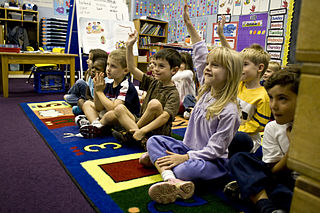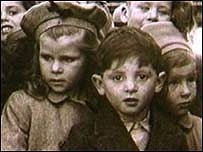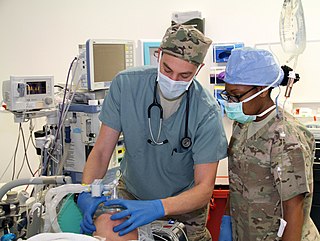![Medicine Science and [[practice]]"`UNIQ--ref-00000002-QINU`" of the diagnosis, treatment, and prevention of physical and mental illnesses](https://upload.wikimedia.org/wikipedia/commons/thumb/d/d2/Asklepios.3.jpg/213px-Asklepios.3.jpg)
Medicine is the art, science, and practice of caring for a patient and managing the diagnosis, prognosis, prevention, treatment or palliation of their injury or disease. Medicine encompasses a variety of health care practices evolved to maintain and restore health by the prevention and treatment of illness. Contemporary medicine applies biomedical sciences, biomedical research, genetics, and medical technology to diagnose, treat, and prevent injury and disease, typically through pharmaceuticals or surgery, but also through therapies as diverse as psychotherapy, external splints and traction, medical devices, biologics, and ionizing radiation, amongst others.

A physician, medical practitioner, medical doctor, or simply doctor, is a professional who practices medicine, which is concerned with promoting, maintaining, or restoring health through the study, diagnosis, prognosis and treatment of disease, injury, and other physical and mental impairments. Physicians may focus their practice on certain disease categories, types of patients, and methods of treatment—known as specialities—or they may assume responsibility for the provision of continuing and comprehensive medical care to individuals, families, and communities—known as general practice. Medical practice properly requires both a detailed knowledge of the academic disciplines, such as anatomy and physiology, underlying diseases and their treatment—the science of medicine—and also a decent competence in its applied practice—the art or craft of medicine.

Pediatrics is the branch of medicine that involves the medical care of infants, children, and adolescents. The American Academy of Pediatrics recommends people be under pediatric care through the age of 21. In the United Kingdom, pediatrics covers patients until age 18. Worldwide age limits of pediatrics have been trending up year over year. A medical doctor who specializes in this area is known as a pediatrician, or paediatrician. The word pediatrics and its cognates mean "healer of children"; they derive from two Greek words: παῖς and ἰατρός. Pediatricians work in hospitals and children's hospitals particularly those working in its subspecialties, and as outpatient primary care physicians.

A chaplain is, traditionally, a cleric, or a lay representative of a religious tradition, attached to a secular institution such as a hospital, prison, military unit, intelligence agency, embassy, school, labor union, business, police department, fire department, university, sports club, or private chapel.

Pharmacists, also known as chemists or druggists, are health professionals who specialize in the safe use of medicines, as they deal with the composition, effects, mechanism of action and proper and effective use of drugs. Using knowledge of the mechanism of action of drugs, the pharmacist understands how they should be used to achieve maximum benefit, minimal side effects and to avoid drug interactions. Pharmacists undergo university or graduate-level education to understand the biochemical mechanisms and actions of drugs, drug uses, therapeutic roles, side effects, potential drug interactions, and monitoring parameters. This is mated to anatomy, physiology, and pathophysiology. Pharmacists interpret and communicate this specialized knowledge to patients, physicians, and other health care providers.

Kindergarten is a preschool educational approach based on playing, singing, practical activities such as drawing, and social interaction as part of the transition from home to school. Such institutions were originally made in the late 18th century in Bavaria and Alsace to serve children whose parents both worked outside home. The term was coined by the German Friedrich Fröbel, whose approach globally influenced early-years education. Today, the term is used in many countries to describe a variety of educational institutions and learning spaces for children ranging from 2 to 6 or 7 years of age, based on a variety of teaching methods.

Health care, health-care, or healthcare is the maintenance or improvement of health via the prevention, diagnosis, treatment, recovery, or cure of disease, illness, injury, and other physical and mental impairments in people. Health care is delivered by health professionals and allied health fields. Medicine, dentistry, pharmacy, midwifery, nursing, optometry, audiology, psychology, occupational therapy, physical therapy, athletic training and other health professions are all part of health care. It includes work done in providing primary care, secondary care, and tertiary care, as well as in public health.

Historically, an orphanage is a residential institution, or group home, devoted to the care of orphans and other children who were separated from their biological families. Examples of what would cause a child to be placed in orphanages are when the parents were deceased, the biological family was abusive to the child, there was substance abuse or mental illness in the biological home that was detrimental to the child, or the parents had to leave to work elsewhere and were unable or unwilling to take the child. The role of legal responsibility for the support of children whose parent(s) have died or are otherwise unable to provide care differs internationally.

Foster care is a system in which a minor has been placed into a ward, group home, or private home of a state-certified caregiver, referred to as a "foster parent" or with a family member approved by the state. The placement of the child is normally arranged through the government or a social service agency. The institution, group home or foster parent is compensated for expenses unless with a family member. In some states, relative or "Kinship" caregivers of children who are wards of the state, are provided with a financial stipend.

Child care, otherwise known as day care, is the care and supervision of a child or multiple children at a time, whose ages range from two weeks to twenty years. Child care is a broad topic that covers a wide spectrum of professionals, institutions, contexts, activities, and social and cultural conventions. Early child care is an equally important and often overlooked component of child development.

Anesthesiology, anaesthesiology, anaesthesia or anaesthetics is the medical specialty concerned with the total perioperative care of patients before, during and after surgery. It encompasses anesthesia, intensive care medicine, critical emergency medicine, and pain medicine. A physician specialised in this field of medicine is called an anesthesiologist, anaesthesiologist or anaesthetist, depending on the country.

A preschool, also known as nursery school, pre-primary school, or play school, is an educational establishment or learning space offering early childhood education to children before they begin compulsory education at primary school. It may be publicly or privately operated, and may be subsidised from public funds.
Family medicine (FM), formerly family practice (FP), is a medical specialty devoted to comprehensive health care for people of all ages. The specialist is named a family physician or family doctor. In Europe, the discipline is often referred to as general practice and a practitioner as a general practice doctor or GP. This name emphasizes the holistic nature of this speciality, as well as its roots in the family. Family practice is a division of primary care that provides continuing and comprehensive health care for the individual and family across all ages, genders, diseases, and parts of the body. Family physicians are often primary care physicians. It is based on knowledge of the patient in the context of the family and the community, emphasizing disease prevention and health promotion. According to the World Organization of Family Doctors (WONCA), the aim of family medicine is to provide personal, comprehensive, and continuing care for the individual in the context of the family and the community. The issues of values underlying this practice are usually known as primary care ethics.

Viswanathan Shanta was an Indian oncologist and the chairperson of Adyar Cancer Institute, Chennai. She was best known for her efforts towards making quality and affordable cancer treatment accessible to all patients in her country. She dedicated herself to the mission of organizing care for cancer patients, study of the disease, research on its prevention and cure, spreading awareness about the disease, and developing specialists and scientists in various subspecialties of oncology. Her work won her several awards, including the Magsaysay Award, Padma Shri, Padma Bhushan, and Padma Vibhushan, the second highest civilian award given by the Government of India.

A nurse practitioner (NP) is an advanced practice registered nurse and a type of mid-level practitioner. NPs are trained to assess patient needs, order and interpret diagnostic and laboratory tests, diagnose disease, formulate and prescribe treatment plans. NP training covers basic disease prevention, coordination of care, and health promotion, but does not provide the depth of expertise needed to recognize more complex conditions. According to the American Association of Nurse Practitioners, an organization that aggressively lobbies for the expansion of the scope of practice of NPs, NPs are educated at the graduate level to provide "primary, acute, chronic, and specialty care to patients of all ages", depending on their field of practice.

Villivakkam is a neighbourhood of Chennai, Tamil Nadu, India. It is served by the Villivakkam railway station on the Chennai Central–Arakkonam suburban section.

Nursing is a profession within the health care sector focused on the care of individuals, families, and communities so they may attain, maintain, or recover optimal health and quality of life. Nurses may be differentiated from other health care providers by their approach to patient care, training, and scope of practice. Nurses practice in many specialties with differing levels of prescription authority. Many nurses provide care within the ordering scope of physicians, and this traditional role has shaped the public image of nurses as care providers. However, nurse practitioners are permitted by most jurisdictions to practice independently in a variety of settings. Since the postwar period, nurse education has undergone a process of diversification towards advanced and specialized credentials, and many of the traditional regulations and provider roles are changing.

A hospital is a health care institution providing patient treatment with specialized medical and nursing staff and medical equipment. The best-known type of hospital is the general hospital, which typically has an emergency department to treat urgent health problems ranging from fire and accident victims to a sudden illness. A district hospital typically is the major health care facility in its region, with many beds for intensive care and additional beds for patients who need long-term care. Specialized hospitals include trauma centers, rehabilitation hospitals, children's hospitals, seniors' (geriatric) hospitals, and hospitals for dealing with specific medical needs such as psychiatric treatment and certain disease categories. Specialized hospitals can help reduce health care costs compared to general hospitals. Hospitals are classified as general, specialty, or government depending on the sources of income received.
Hospice care is a type of health care that focuses on the palliation of a terminally ill patient's pain and symptoms and attending to their emotional and spiritual needs at the end of life. Hospice care prioritizes comfort and quality of life by reducing pain and suffering. Hospice care provides an alternative to therapies focused on life-prolonging measures that may be arduous, likely to cause more symptoms, or are not aligned with a person's goals.
The COVID-19 pandemic in Ontario is an ongoing viral pandemic of coronavirus disease 2019 (COVID-19), a novel infectious disease caused by severe acute respiratory syndrome coronavirus 2 (SARS-CoV-2). The first confirmed case of COVID-19 in Canada was announced on January 25, 2020, involving a traveler who had recently returned to Toronto from travel in China, including Wuhan. As of November 10, 2020, Ontario has the second-largest number of confirmed COVID-19 cases among Canada's provinces and territories, behind only Quebec.
![Medicine Science and [[practice]]"`UNIQ--ref-00000002-QINU`" of the diagnosis, treatment, and prevention of physical and mental illnesses](https://upload.wikimedia.org/wikipedia/commons/thumb/d/d2/Asklepios.3.jpg/213px-Asklepios.3.jpg)















